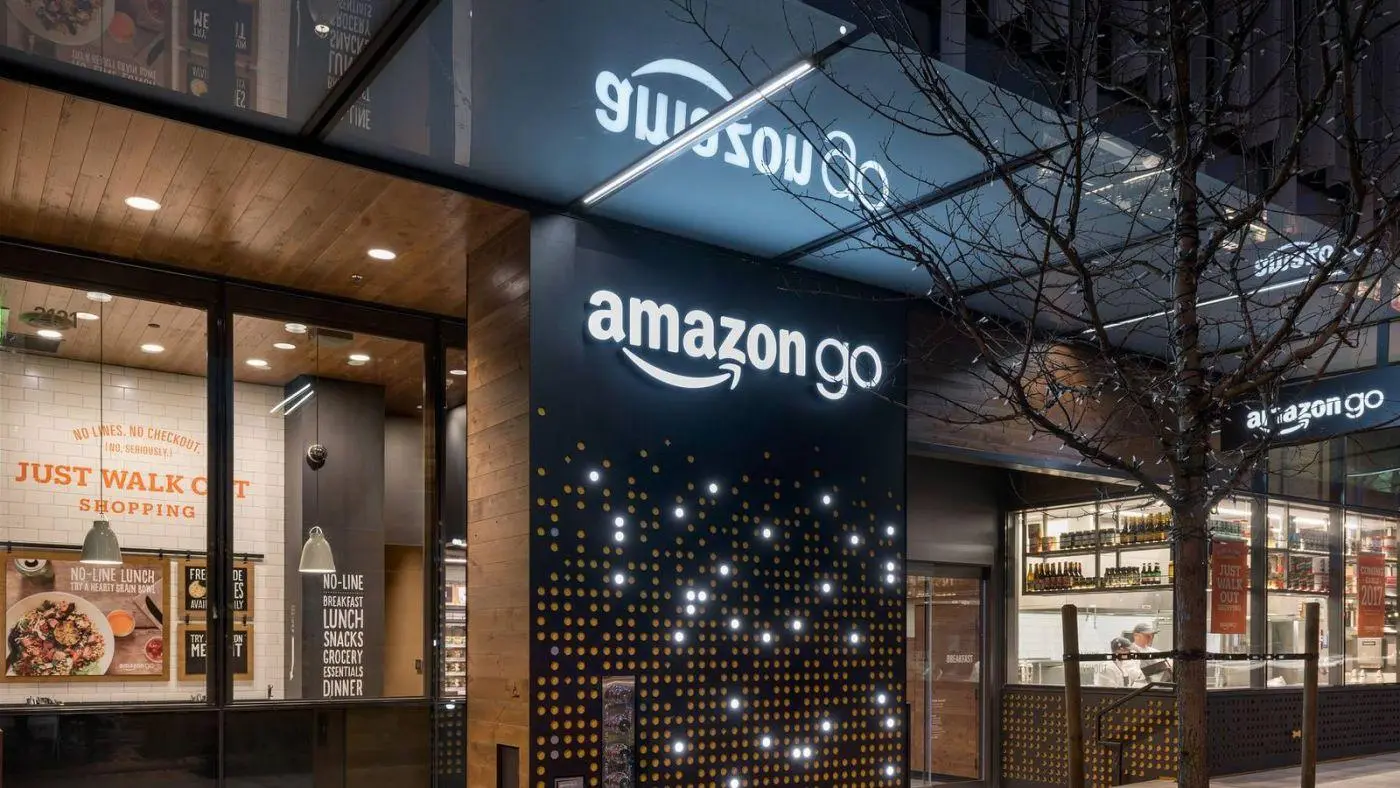Comments
- No comments found
Amazon plans to capture more food sales, opening the door to a key driver of consumer spending that would broaden its increasing dominance in the retail market.

Futuristic supermarkets with no checkouts could soon open in the United States © BBN
The company unveiled this past Monday, Amazon Go, its first small-format grocery store with curbside pickup capability. What is the future of grocery shopping and how can Amazon compete with Walmart and other retail giants? Adding grocery pickups will surely be a key part of Amazon's secret sauce in terms of all the different ways in which it engages customers in bringing products to them. The retail firm plans on opening more than 1,000 brick-and-mortar grocery stores under its name. Amazon go expects to compete against rivals including Target Corp. and Wal-Mart Stores Inc. Until now, the company has centered its grocery strategy around Amazon Fresh, a subscription service that promises quick food delivery for online orders. But delivering groceries are logistically complex, requiring fast delivery for cold items as part of large orders on less profitable routes, where stops are spread far apart.
It is important to bear in mind that many consumers still prefer to touch, smell and pick out fresh items like fruits and vegetables for themselves. According to Kantar Retail, online purchases comprise about 1% of the $674 billion market for edible groceries in the U.S. The Amazon Go store, at roughly 1,800 square feet in downtown Seattle, resembles a convenience store-format. It features artificial intelligence-powered technology that eliminates checkouts, cash registers and lines. Instead, customers scan their phone on a kiosk as they walk in, and Amazon automatically determines what items customers take from the shelves. After leaving the store, Amazon charges their account for the items and sends a receipt.
While Amazon is moving into brick-and-mortar grocery shopping, other large retailers are expanding their online services. Wal-Mart’s curbside pickup service offers some convenience without the cost of home delivery. Last week, Wal-Mart opened its second Pickup and Fuel store in Denver, a small-format store that offers a limited selection of fresh food, snack and gas as well as allowing shoppers to pick up online grocery orders. Target, the 2nd largest retailer in the U.S, considered in recent months a pilot to deliver its own groceries, which face declining sales as too few shoppers are buying perishable items like milk and eggs. But the firm hasn’t moved forward with the idea. Target currently offers a grocery-delivery service in select cities through a partnership with Instacart Inc., a grocery-delivery startup. However, executives are concerned the service is boosting Instacart’s brand rather than the retailer’s own brand. As Target pauses grocery delivery, Amazon envisions filling in the gap.
The online retailer hopes to one day function as a grocery-delivery service and distributor for brick-and-mortar retailers, a move that will help lower its own costs as it builds out its own transportation network. The more deliveries, the more cost-effective its service becomes—including lower food prices as the online retailer purchases more. Goldman Sachs' Analysts expect that many retailers would be reluctant to hand over the reins to Amazon. Grocery sales produce slim profits for chains like Target and Wal-Mart, but are important because they drive traffic to their stores where consumers buy higher-margin products like apparel and home items. A future in which Amazon is delivering Target’s groceries is very unlikely according to the same analysts. Target and Wallmart are not going to give that benefit and will surely not accept to be overshadowed by Amazon. Nonetheless, brace yourselves, checkout-free grocery stores are coming.
Badr Berrada is a tech entrepreneur & international best-selling author. As a Founder & CEO of BBN Times, he manages a team of more than 150 renowned industry experts. He has been featured in renowned publications such as Forbes Magazine, Business Insider, Yahoo! News, Thrive Global, Irish Tech News, Khaleej Times, Herald-Tribune, Pulse Ghana, le360 and IdeaMensch. Badr Berrada is also the CEO of Tech BSB, a consulting platform that provides services in artificial intelligence, cybersecurity, data analytics, cloud computing and sustainability. He co-authored The Growth Hacking Book: Most Guarded Growth Marketing Secrets The Silicon Valley Giants Don’t Want You To Know and The Growth Hacking Book 2 : 100 Proven Hacks for Business and Startup Success in the New Decade. Badr holds a master's degree in Economy, Risk and Society from the London School of Economics and a bachelor degree in Finance from Cass Business School.
Leave your comments
Post comment as a guest